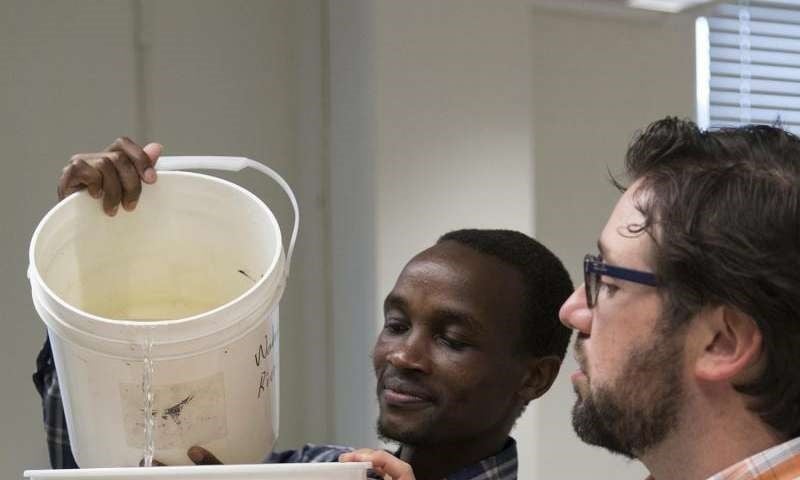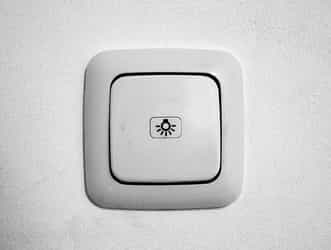In Swahili, "Maji Safi" means "clean water."
It's also the name of a start-up company dedicated to promoting effective water sanitation and hygiene (WASH) practices through creative education to fight waterborne diseases.
Maji Safi International LLC, the official title of the non-profit company, was founded in 2013 by John Maiyo, a doctoral student of engineering at Purdue University.
The Purdue-affiliated start-up recently
developed a low-cost, low-maintenance slow sand water filter technology to better provide clean and safe drinking water to schools and communities in developing countries around the world.
"Access to clean water is a huge problem that many countries and communities face around the world, especially developing countries," Maiyo said. "Around the globe, twice the population of the United States lives without access to safe drinking water, and globally one-third of all schools lack access to safe water and adequate sanitation."
SLOW SAND FILTER TECHNOLOGY: LOW COST, EFFICIENT
The technology is a slow sand filter that utilizes containers filled with sand and water. The bottom of the container contains a water collection plate engineered at Purdue. The sand provides a large surface area on which microbial growth occurs that metabolizes the dissolved and particulate organic material in the water. The point-of-use slow sand filters are made from readily available five-gallon plastic pails or 55-gallon drums.
Slow sand filters typically use gravel layers at the bottom of the filter as the water collection zone. But the Purdue-developed
technology uses a porous plastic plate enclosed within a mesh bag instead of a gravel filter. The method, Maji Safi claims, is simpler and easier to use and maintain because it eliminates the need to sieve and rinse different gravel sizes. With only the sand to treat, filter maintenance is streamlined, along with easier transportation and final assembly.
After the water is treated by a filter, a small amount of chlorine is added for final disinfection, producing clear, colorless, drinkable water. Maiyo says the water is ready to drink after 30 minutes of contact with the chlorine.
"People and children in schools come up to the filter systems with a cup to get a drink, and the schools are able to use the water in their kitchens or for cleaning," Maiyo notes. "Because the filters are operated in 'batch' mode, water is generally added three times each day, providing for an eight-hour contact time between the water and microorganisms in the filter."
He says each 55-gallon drum filter can process 200 liters of water each day. Five filters installed at one school will meet the daily needs of over 400 children and teachers at the school, he claims.
CLEANER WATER DELIVERY A BOON TO RURAL COMMUNITIES
The filters are ideal for rural communities, says John Howarter, assistant professor of engineering at Purdue and an adviser to Maji Safi.
"The materials needed for these filters are very basic and can be found in the countries we aim to serve. The idea is that the microorganisms do the work to remove organic materials from the water so the only energy demand is pouring water into the filter," Howarter says. "As a disinfectant, chlorine is very inexpensive in the countries where we have installed filters, so there is no huge investment required by the communities to use the technology."
Maji Safi has installed 10 large slow sand filters in rural schools in Kenya, and similar filters have been installed in Colombia, Tanzania and China.
PLANS FOR EXPANDING ITS WATER TREATMENT TECHNOLOGY
Maji Safi plans to improve the filters based on feedback from the communities.
"We're working to improve water delivery, water chlorination and chlorine detection, as well as automating the filters so that water can be pumped directly from local streams to the filters," Howarter says. "We're also working on a device that connects to a smartphone to tell users what filters aren't working properly so adjustments can be made remotely instead of having to visit the schools in person."
Maiyo says the company's next steps involve marketing the filters to other schools.
"Everything we've done, so far, has been through funding, but now that we've installed the filters in a few schools and the schools have seen the filters' potential, we're hoping other schools will be willing to purchase them," he says.
Maji Safi aims to implement filters in 1,000 schools over the next five to 10 years.
"We started out with a goal of providing filters to just four schools as demonstration projects, and now that that's done and has been successful, we're working on scaling up," Maiyo observes. "A filter in Kenya costs about $50 in materials, with labor and transportation as additional costs, but that filter will last five to 10 years, so the overall cost is very low. We're open to partnering with a local manufacturer in Kenya or elsewhere who would be willing to do a trial run of parts manufacturing for 1,000 filters, which would be a huge step forward."




